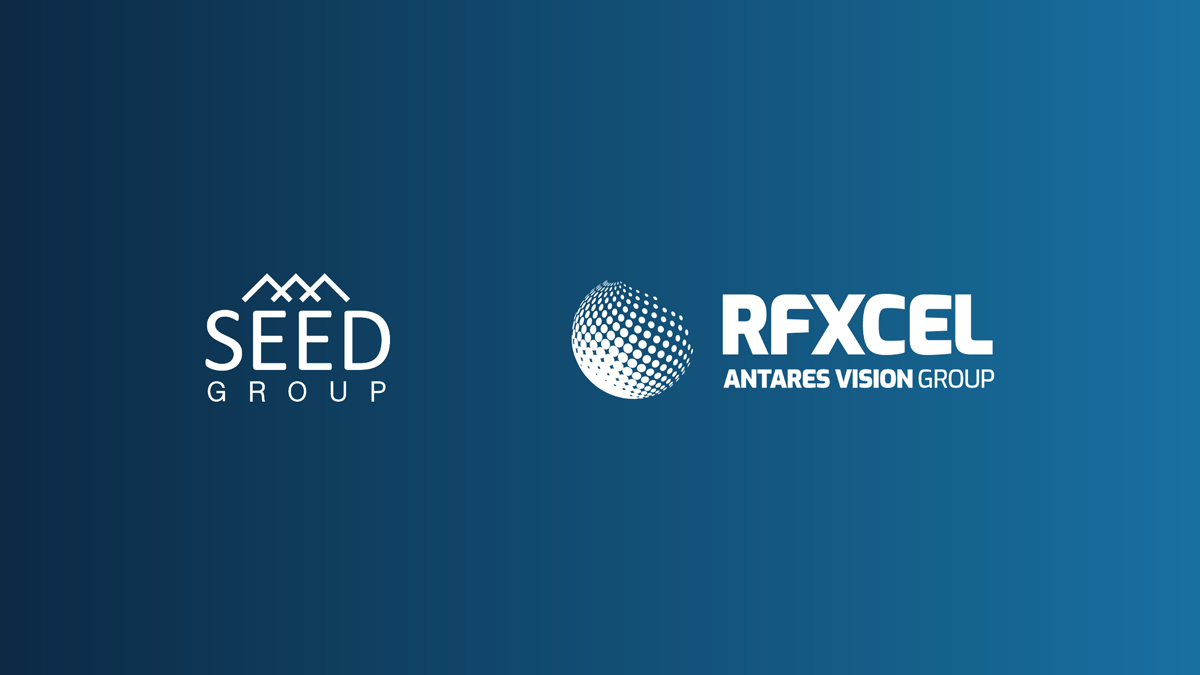The Food and Drug Administration Food Safety and Modernization Act (FSMA) is going to change how the U.S. food supply chain works. And not just for U.S. companies. When the law takes effect in January 2026, foreign companies that import food to the United States must also comply. This is what the FSMA Foreign Supplier Verification Program (FSVP) is all about.
If you’re an importer, you’re subject to the FSVP under FSMA. If you’re a U.S.-based company, you want to make sure your non-U.S. trading partners are compliant.
Here is everything you need to know about the FSVP so that you can achieve and maintain FSMA compliance.
What Is an Foreign Supplier Verification Program? What Is the Significance?
Technically, FSVP stands for Food Supplier Verification Programs (plural). An FSVP is a program that promotes traceability, food safety, and transparency across the entire food supply chain. It mandates that importers perform certain activities to facilitate public health protection and verify that imported food meets the FSMA safety requirements.
Under a Foreign Supplier Verification Program, importers are required to verify that the food they import meets U.S. safety standards. They must develop, maintain, and follow an FSVP for each food imported, unless an exemption applies. The goal, therefore, is to ensure that every imported food has been produced in a way that delivers the same level of public health protection as the applicable FSMA requirements, and that food is not adulterated or misbranded with respect to allergen labeling.
Why is the Foreign Supplier Verification Program necessary? The answer is simple: The United States imports billions in food each year. According to the USDA, the U.S. imported $148 billion in agricultural products in 2020. U.S. food also includes a huge amount of imported animal products.
By extending FSMA requirements to importers and their suppliers, the Foreign Supplier Verification Programs promote increased safety and accountability. It also provides insights into each foreign supplier’s performance, enabling U.S. food businesses to make informed decisions about their trade relationships and promote good manufacturing practices.
Who Is Covered by the FSVP?
It defines an importer as “the U.S. owner or consignee of the food offered for import (i.e., owns the food, has purchased it, or has agreed in writing to purchase it at the time of U.S. entry).” If there isn’t a U.S. owner or consignee at time the product enters the USA, the FSVP defines the importer as “the U.S. agent/representative of the foreign owner/consignee, as confirmed in a signed statement of consent.”
The important takeaway is that there must be a U.S.-based FSVP importer who takes responsibility for meeting the FSVP requirements.
Key Components of the FSVP
The Foreign Supplier Verification Program is built on widely accepted food safety standards and preventive controls rules. Key FSVP requirements include the following:
- Hazard analysis: Importers must analyze hazards associated with each food.
- Supplier verification: The FSVP outlines appropriate supplier verification activities that importers must complete.
- Corrective actions: Procedures must be in place to address identified issues.
Requirements for Importers
An FSVP importer may need to perform the following activities, unless they’re exempt or subject to modified requirements.
Verify Suppliers
Conduct appropriate supplier verification to assure that the hazards requiring a control in the food you import have been significantly minimized or prevented. These activities may include annual onsite audits by a qualified auditor, sampling and testing food, and reviewing the supplier’s food safety records.
Perform a Hazard Analysis
Hazard analyses must include identifying “known or reasonably foreseeable hazards” and determining if they require a control. The FDA notes several types of hazards, including the following:
- Biological (e.g., parasites and disease-causing bacteria)
- Chemical (e.g., radiological hazards, pesticide and drug residues, natural toxins, unapproved additives, food allergens, and nutrient deficiencies or toxicities in animal food)
- Physical (e.g., objects in food products such as glass)
Evaluate Risks
You must evaluate risks that the food itself and the foreign supplier’s performance could pose. In doing so, you must consider the following:
- Your hazard analysis for the food
- Who will apply the hazard controls (e.g., the supplier or its ingredient supplier)
- The supplier’s food safety practices and procedures
- Applicable U.S. food safety regulations and information about the supplier’s compliance
- The supplier’s food safety performance history, which should include testing and audit results and the supplier’s record of correcting identified problems.
Perform Periodic Reassessments
You have to reassess your foreign suppliers every three years — or sooner if the FSVP importer becomes aware of new information about hazards in the food or changes in the foreign supplier’s performance.
Identify the FSVP Importer
As an FSVP importer, you are required to provide the U.S. government with the following information about your organization:
- Legal business name
- Electronic mailing address
- Unique facility identifier (UFI)
The FDA accepts the Data Universal Numbering System (DUNS) number as a UFI. FSVP importers temporarily unable to obtain a DUNS number have since May 2017 been permitted to transmit the value “UNK” (i.e., “unknown”) in the UFI field, allowing food to be processed through the Customs and Border Patrol (CBP) Automated Commercial Environment (ACE) system, even if the importer has not yet provided a DUNS number.
Other Requirements
You must use a qualified person to develop an FSVP and to perform FSVP activities.
Furthermore, you must take corrective actions (if necessary) and investigate the adequacy of the FSVP (when appropriate). The corrective action will depend on the circumstances; for example, the best course of action may be to stop using the foreign supplier until the problem (e.g., noncompliance, adulteration, misbranding) has been adequately addressed.
Last, you’re required to maintain detailed FSVP records. A U.S. agent can request these records during an audit. Alternatively, they might review them during a randomized compliance assessment. Make sure you retain all digital records related to your FSVP compliance activities for at least two years.
Role of Technology in FSVP Compliance
Old-school compliance strategies can’t keep pace with the stringent recordkeeping and analytics mandates found in the Foreign Supplier Verification Program framework. Instead, you need a robust suite of technologies designed to accelerate and simplify compliance.
Adopting food supply chain software will empower your team to gather and manage key details about trading partners. With the right tools in place, you can transform food safety and regulatory compliance into an integrated part of your company culture.
Collaboration with Foreign Suppliers
FSVP compliance is a joint effort; you cannot achieve and maintain compliance without the support of your foreign suppliers. Reputable and successful foreign suppliers will embrace FSVP, as they understand that they cannot import their goods to the United States without complying.
Use this to your advantage. Reach out to your trading partners, relay what requirements apply to your organization and its operations, and develop a cohesive strategy to meet FSVP provisions. Building strong relationships with suppliers is key to a successful verification and hazard mitigation program.
FSVP Rollout and Influence
To date, compliance with the Foreign Supplier Verification Programs has been a challenge for many importers. According to a 2020 FDA report, in 2019 the Agency issued 340 citations to companies for failing to develop an FSVP — a 17 percent increase over 2018. In total, there were 354 non-compliance citations, including for failing to:
- Follow or maintain the FSVP
- Translate the FSVP into English when applicable
- Sign and date the FSVP upon modification
- Make adequate assurances of a supplier’s food safety
Over the last two years, the FDA has ramped up enforcement, which means that preparedness and diligence are more important than ever. As the Agency itself says, “Being prepared is key to avoiding a citation.”
Even with these challenges, the food industry should anticipate that FSVP will have a broader, sustained impact on global food supply chains. Along with FSMA, it encourages international suppliers to elevate their food safety standards, adopt best practices, and embrace food safety in a digital, traceable supply chain. This will lead to a more uniform global food safety system, enhancing consumer confidence in the safety of foods everywhere.
It’s likely that more and more countries will enact or continue rolling out similar food safety regulations on imported goods. When they do, it will accelerate the push toward safer, more sustainable food production practices.
Final Thoughts: Achieve Foreign Supplier Verification Program Compliance
As we’ve seen, the FSVP requires a lot of importers and their foreign suppliers, and many organizations have struggled with compliance.
The keys to success (and avoiding citations and fines) are preparedness and proactive implementation of FSVP practices and technologies that will yield a safer and more transparent food importation process.
If you don’t know where to start, contact us today to book a demo. Our traceability and transparency solutions for the food and beverage industries not only take the guesswork out of compliance — they transform all your supply chain data into true business value.




